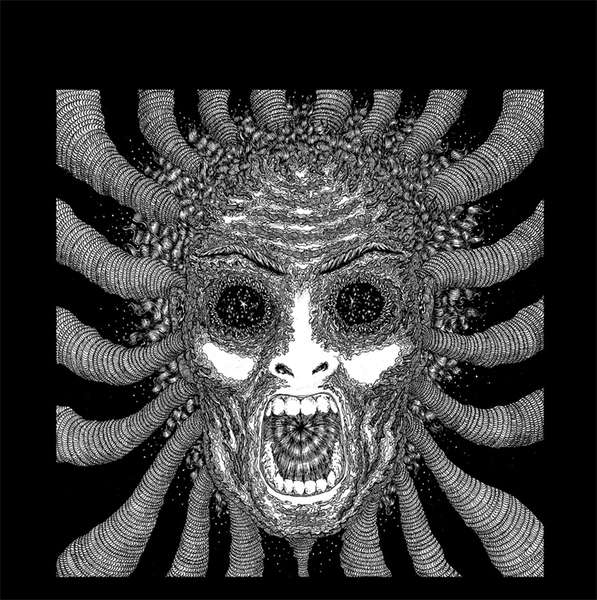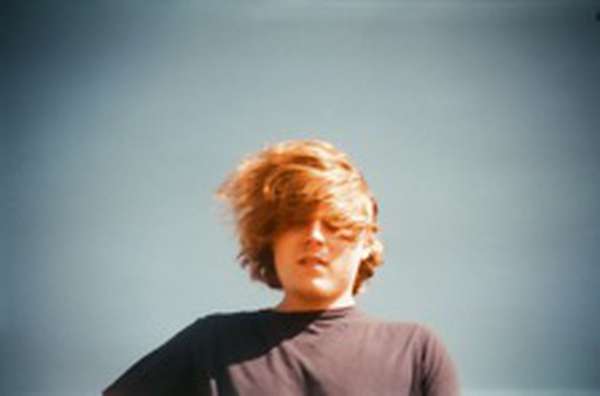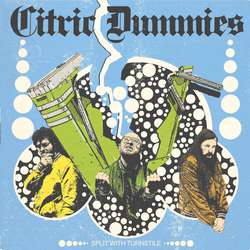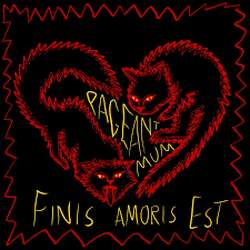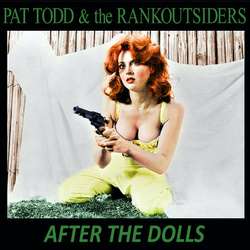It’s hard to know just how much back story/preamble to include when discussing the music of San Franciscan rocker Ty Segall. His career, to date, has been incredibly varied and his ridiculously prolific output includes countless albums, EPs, cassettes, split 45s, etc. To wit, this year alone has seen the release of three full-length albums: one with White Fence (Hair), and one solo project (Twins, released earlier this month). Each have their merits and unique flavors, but neither compare to the staggering Slaughterhouse, written and recorded with Segall’s touring band and released in June of this year under the In the Red label.
Most tracks evince a tongue-in-cheek take on classic forms – here’s menacing, relentless space rock, here’s glam flavored, riff-driven surf. Nothing particularly innovative at first listen, but that may be the secret of the record’s irresistible appeal: keeping it simple. Ponderous, staccato drums and heavy descending riffs are reminiscent of the early metal we all know and love and have privately head-banged to. Bitchin’ guitar solos sure to please the psych-rock lover in all of us abound. All are a little bit familiar, but then all have been tampered with in a deliciously demented way.
Take the lead track, “Death.” Its hypnotic, psychedelic garage pastiche punctuated by well-placed howls is the kind of music every kid who ever picked up a cheap guitar dreams of playing. Next, “I Bought My Eyes” presents straight up rock & roll drumming and showcases the simple but aurally pleasing vocal harmonies sprinkled throughout the album. Other recurring themes are an almost nauseating guitar weave-off and a confident, mantra-like lyricism.
The title track’s trapped-in-a-concrete-chamber vocals and that characteristic fuzz guitar tone make one thing evident: you shouldn’t really bother listening unless you’re going to turn it up. It seems safe to assume that these guys had a good time recording and producing the record – the noise/fuzz fest that is “The Tongue” is enough to make any stoner feel exultant, and the triumphant cry of “fuck yeah!” at the end of the slinky “Wave Goodbye” is pretty much what we were all thinking anyway.
Track lengths vary, with a few tunes clocking in under the two minute mark – tasty little vignettes that chug along merrily and wrap up too soon. Others come across as more musically ambitious in their use of skilful dynamic shifts and more complex structures, as in the demonic “That’s the Bag I’m In,” an amped-up, fucked-up take on 60s British invasion style pop. Mention should also be made of the excellent “Diddy Wah Diddy” cover – recognizable to any respectable Captain Beefheart fan but distorted and frantic and joyfully sloppy enough to justify bothering with it in the first place.
Everything wraps up with “Fuzz War,” which seems initially to revisit the album’s first track. A low rumble and distorted tones evocative of sirens in the distance – it’s a rock and roll emergency! This seemingly formless romp continues for ten-plus minutes, which in certain other contexts could come across as indulgent or simply audacious. Here, it seems strangely fitting, as unsurprising as an incoherent Can breakdown and a welcome opportunity to come down whilst soaking up the dissonance. Maybe, like me, you’ll use the break to recoup and collect your splattered brain parts before starting all over again. The exorcism of ill spirits has never seemed like quite so much fun.
